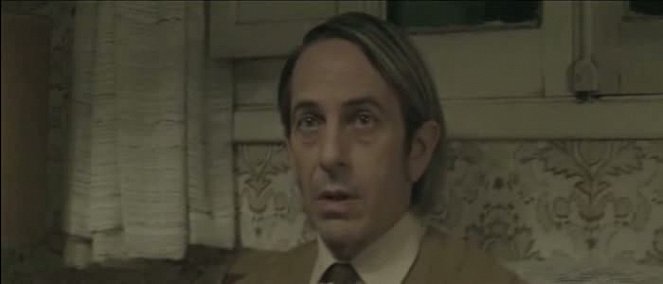Directed by:
Pablo LarraínCinematography:
Sergio ArmstrongComposer:
Juan Cristóbal MezaCast:
Alfredo Castro, Antonia Zegers, Marcelo Alonso, Amparo Noguera, Jaime Vadell, Marcial Tagle, Aldo Parodi, Ernesto Malbran, Constanza B. MajlufPlots(1)
Following the remarkable and critically-acclaimed Tony Manero, multiple award-winning director Pablo Larraín returns to the 'sealed box' of Chile during one of its darkest periods - 1973's military coup. Against this terrifying and murderous backdrop Post Mortem tells the story of an apparently insignificant and charmless couple (Alfredo Castro and Antonia Zegers) whose poignant relationship is played out amid the death and destruction that results from military ideals imposed with no care for their cost or consequences. (Network)
(more)Reviews (2)
This film would deserve the name "Love in the Time of Cholera" more than the novel of that title. Post Mortem is a gloomy drama that goes beyond sadness, coming close to the stench of death. Pablo Larraín makes the film as minimalist as possible; he doesn’t even bother to set the camera angle so that we could see the actors’ faces when, after a several-minute-long scene of quietly sitting at the kitchen table, they start to cry and hang their heads out of view. The film offers quirky loner characters, a lifeless atmosphere without love, humanity or sun, and an increasing number of corpses in the morgue. We hardly see outside of the protagonist’s apartment or the hospital or morgue, and when we do, the sets look theatrically staged. The last scene initially tests the audience’s patience, then provides some release and insight into the meaning of the film and especially its protracted poetics. And it’s up to the viewers whether they acknowledge or condemn the filmmakers’ sophisticated approach.
()
The events of the bloody military coup, which overthrew the government of President Allende in September 1973, were important milestones in the Cold War. In my generation, the coup was common knowledge, albeit distorted through the lens of the Iron Curtain and the bipolar world. I fear that the majority of today's viewers will not be able to orient themselves in the story, especially considering that director Pablo Larraín does not make it any easier for them. He does not explain, nor analyze; we simply experience the coup subjectively through the peculiar pathologist, who silently and with a stony look on his face, observes the mounting piles of corpses on the floor, the groaning of the wounded, and the rising fear in people's eyes. We witness the examination of President Allende's body and the first isolated acts of resistance against the terror. Great histories are written on the streets and stadiums, while here, we rather clean up what is left of the old, shattered world. Mário is a man without expression or emotions, except for his fondness for a local theater dancer. He has no family or friends, no past, and no meaningful future. He is merely an inconspicuous observer of events that have exceeded even the darkest scenarios and imaginations. Overall impression: 75%.
()

